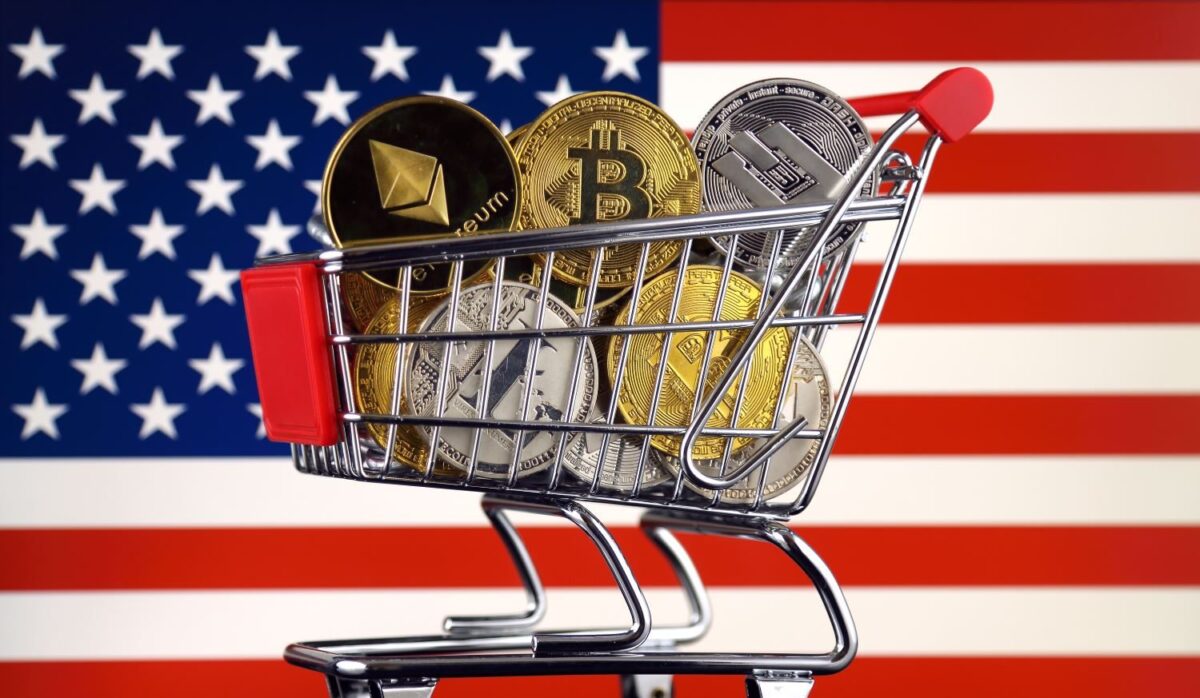Key US economic data to come that could impact the crypto market
24.02.2025 15:21 2 min. read Alexander Zdravkov
This week, several key US economic reports could influence the direction of crypto markets, which remain highly sensitive to broader macroeconomic trends.
Bitcoin is currently hovering around $95,000, with upcoming economic data expected to determine its next big price move.
Consumer Confidence
On Tuesday, the University of Michigan will release its consumer confidence index, which is expected to drop slightly from 104.1 to 102.4. While consumer confidence doesn’t typically move crypto markets as much as events like the Fed raising interest rates, it does reflect sentiment around spending and investment, which could affect Bitcoin.
Initial jobless claims
Thursday’s jobless claims data, reflecting new filings, offers a snapshot of the labor market. A rise in the number of claims signals economic weakness, which often causes investors to shy away from riskier assets like Bitcoin. Conversely, a drop can indicate a strong job market, which boosts confidence in riskier investments like cryptocurrencies.
GDP growth
The GDP report, which is also due on Thursday, could affect BTC’s appeal. Stronger-than-expected GDP (above the projected 2.3% for Q4 2024) could drive investors towards equities, anticipating tighter Federal Reserve policies. A weaker GDP could heighten recession fears and boost Bitcoin as a store of value.
PCE data
Friday’s personal consumption expenditures (PCE) report, a key inflation gauge for the Fed, could impact the price of the leading digital asset. A higher-than-expected PCE could dampen hopes of a rate cut, leading to a drop in the price of Bitcoin. A lower PCE could spark optimism for interest rate cuts, potentially boosting the price of the cryptocurrency.
Bitcoin remains sensitive to macroeconomic trends and investors should be prepared for potential volatility this week.
-
1
SoFi Returns to Crypto with Trading, Staking, and Blockchain Transfers
27.06.2025 8:00 1 min. read -
2
GENIUS Act Could Reshape Legal Battle over TerraUSD and LUNA Tokens
30.06.2025 9:00 1 min. read -
3
Whales Buy the Dip as Retail Panics: This Week in Crypto
29.06.2025 14:00 3 min. read -
4
Kraken Launches U.S. Crypto Derivatives Platform, Eyes Broader Market Expansion
15.07.2025 22:00 1 min. read -
5
How to Earn Yield Holding USDC: A 2025 Guide
15.07.2025 18:10 2 min. read
Kraken Launches U.S. Crypto Derivatives Platform, Eyes Broader Market Expansion
Kraken has officially launched its U.S.-regulated crypto derivatives platform, marking a major step toward merging traditional finance tools with digital asset markets.
How to Earn Yield Holding USDC: A 2025 Guide
If you’re holding USDC and want to maximize your yield, Deribit now offers rewards for eligible users who store USDC on its platform.
Kazakhstan May Invest Gold Reserves in Crypto Sector
Kazakhstan is considering allocating a portion of its gold and foreign currency reserves, along with National Fund assets, into crypto-related investments.
Grayscale Confidentially Files for New SEC-registered Offering Amid Growing Crypto Market demand
Grayscale Investments announced today that it has confidentially submitted a draft registration statement on Form S-1 to the U.S.
-
1
SoFi Returns to Crypto with Trading, Staking, and Blockchain Transfers
27.06.2025 8:00 1 min. read -
2
GENIUS Act Could Reshape Legal Battle over TerraUSD and LUNA Tokens
30.06.2025 9:00 1 min. read -
3
Whales Buy the Dip as Retail Panics: This Week in Crypto
29.06.2025 14:00 3 min. read -
4
Kraken Launches U.S. Crypto Derivatives Platform, Eyes Broader Market Expansion
15.07.2025 22:00 1 min. read -
5
How to Earn Yield Holding USDC: A 2025 Guide
15.07.2025 18:10 2 min. read


